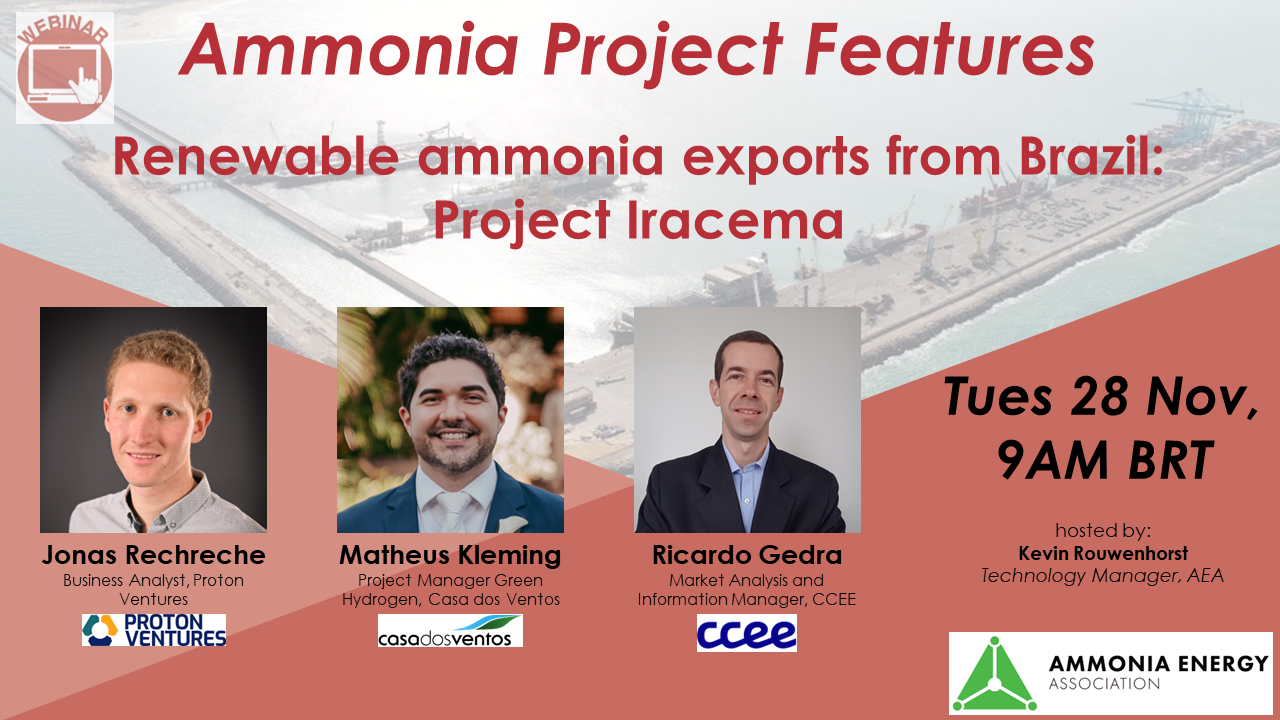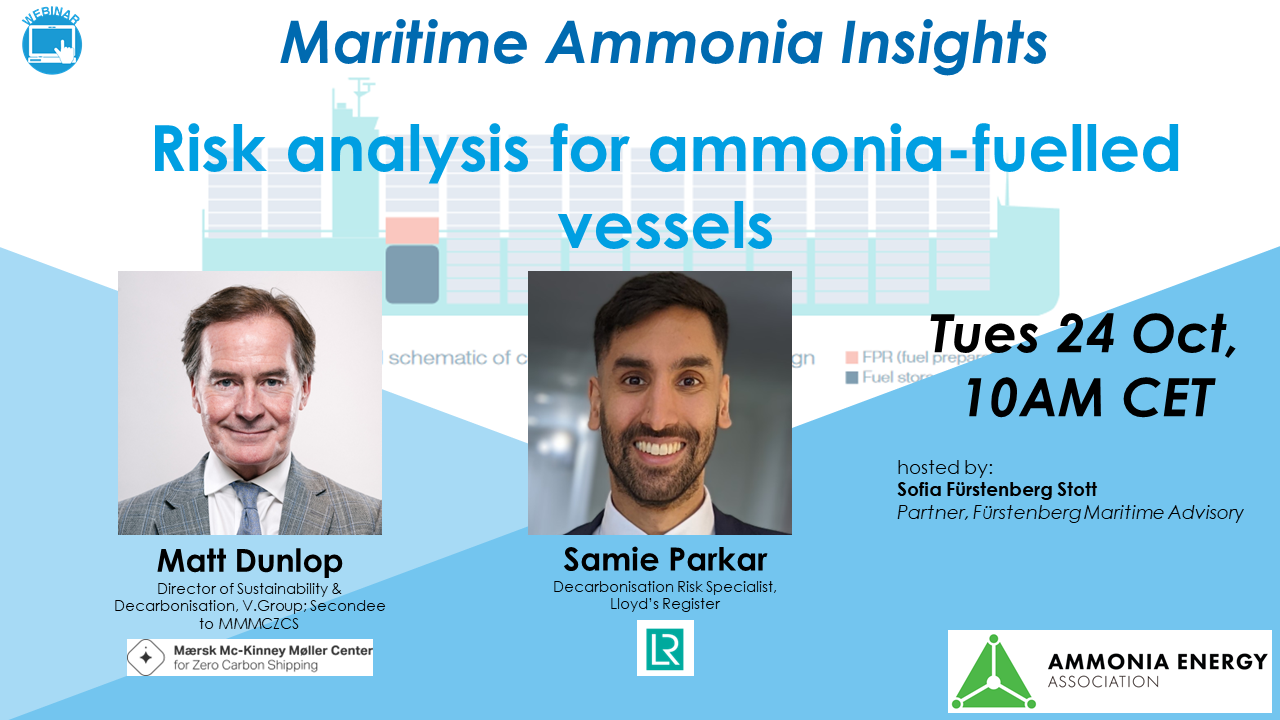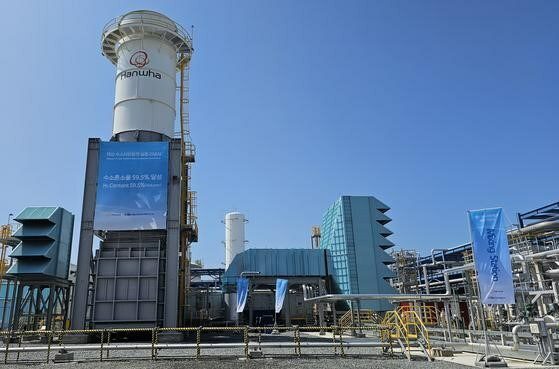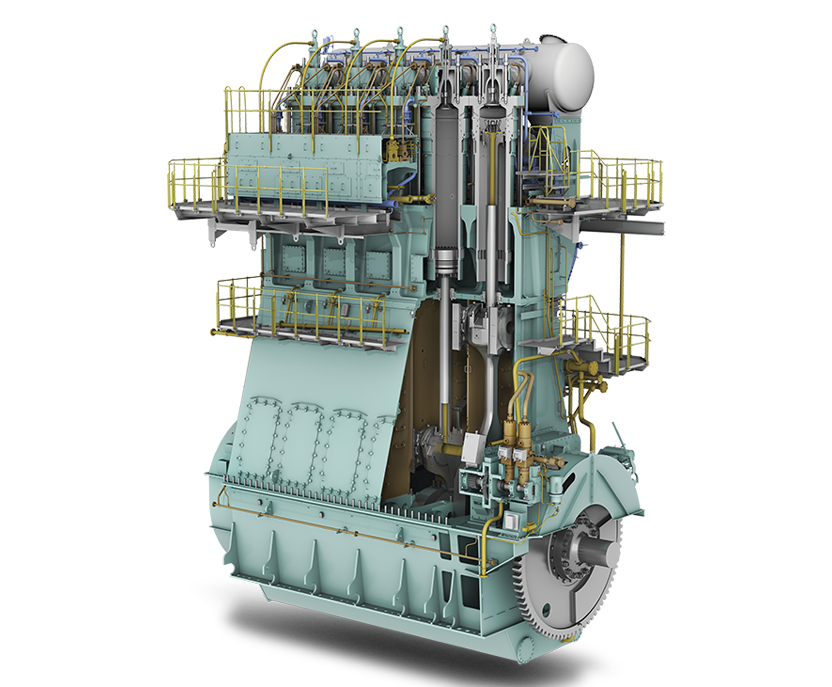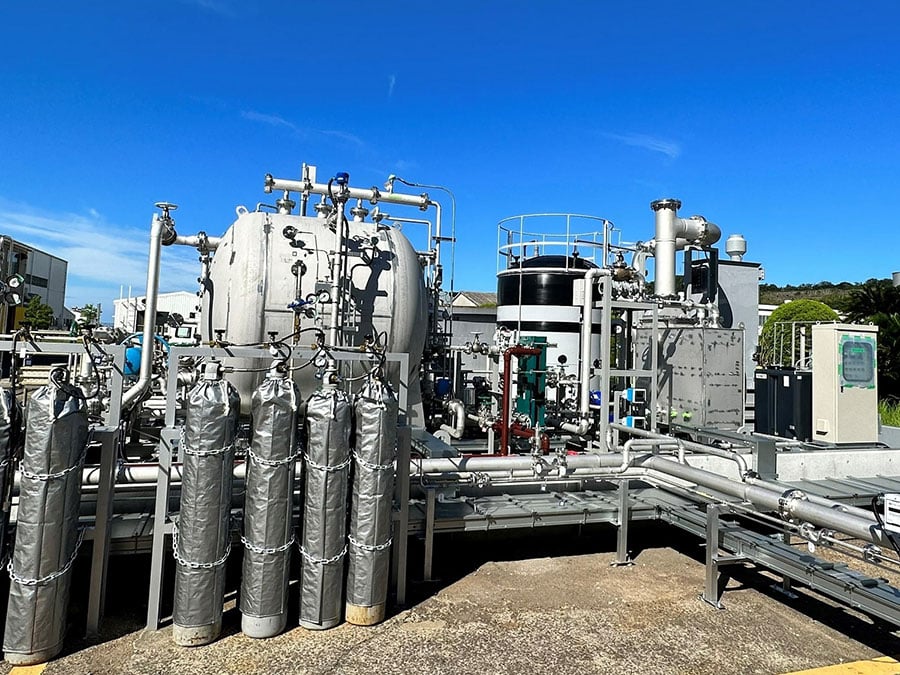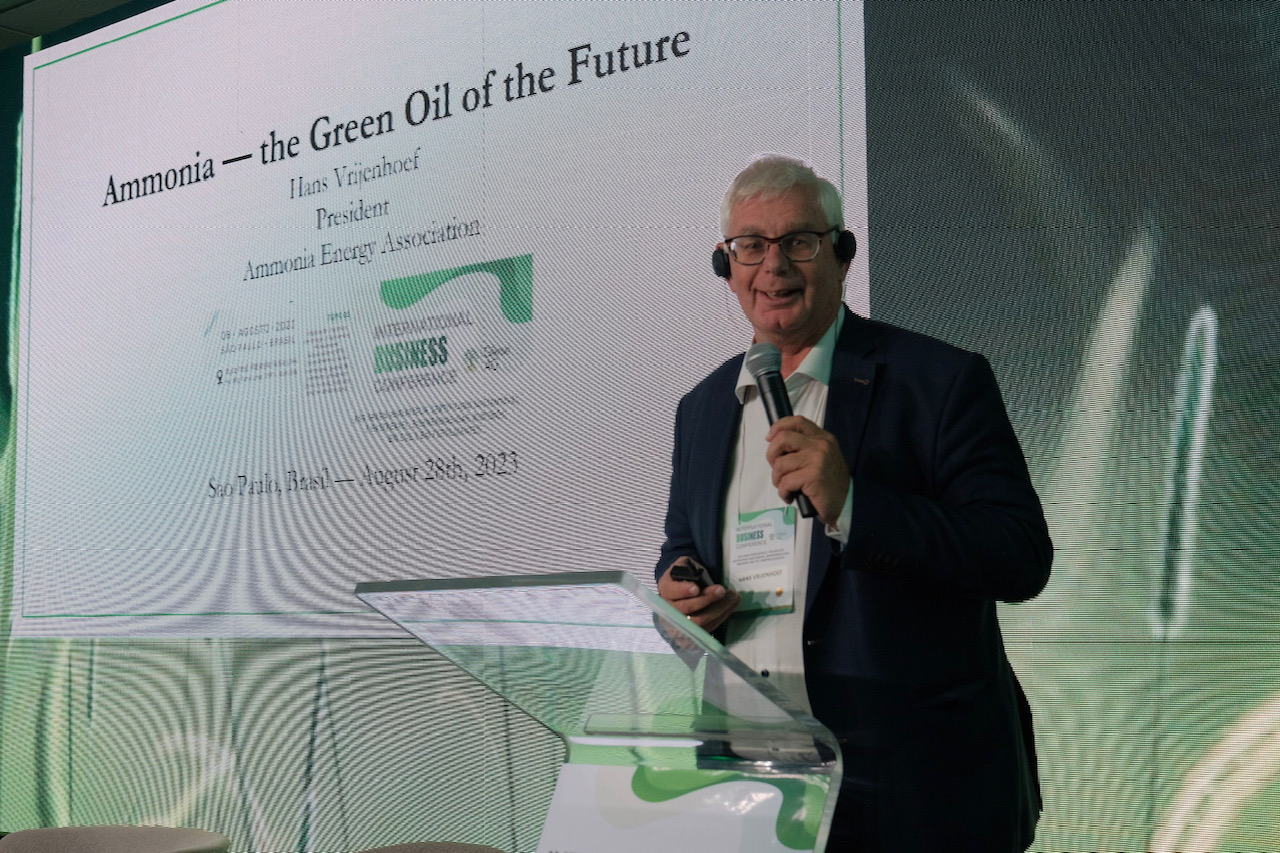Meet partners developing Project Pecem in the northern state of Ceara, Brazil. The first phase of Project Iracema is set to come online in 2027, with the aim of producing ammonia compliant with certification requirements for the export of the renewable hydrogen to Europe. At full capacity, 2.2 million tonnes of grid-connected ammonia production capacity will be enabled.
Emissions
Risk analysis for ammonia-fueled vessels
Hear from the authors of a new joint study into ammonia safety onboard ships. The study is the most comprehensive to-date on the effectiveness of risk mitigation measures applied to ammonia-fueled vessels, pairing Quantitative Risk Assessment with an analysis of human factors.
KBR to provide cracking tech for new South Korean project
KBR will deploy its new H2ACTSM ammonia cracking technology in Daesan, South Korea, delivering 200 tonnes of hydrogen per day as fuel for power generation. The new project is part of Hanwha Corporation’s decarbonisation push which includes co- and 100% firing of hydrogen fuel in gas turbines, ammonia production & export, and ammonia-powered vessels.
Certification with blockchain: H2Global makes the case
In a new policy brief, H2Global sets out the case for the use of blockchain in hydrogen certification. The use of a decentralised, digital, public ledger for key certification data could support the development of radically transparent and secure schemes, though H2Global acknowledges blockchain’s key limitations. To illustrate its potential, H2Global points to the success of two currently operating schemes based on blockchain: “GreenToken” and “Clean Energy Certification as a service” (CEC).
Fertiberia: low-carbon fertilizer alliances with Heineken, PepsiCo
“Green fertilizer” produced at Fertiberia’s Puertollano plant has been successfully used on barley & potato crops in Spain, paving the way for future supply chains. Both Heineken and PepsiCo are aiming to reduce agricultural emissions and intend to scale-up the use of green fertilizer, and Fertiberia is set to begin producing low-carbon fertilizer at its other Spanish production centres.
New marine engine partnerships to accelerate deployment
Expected to become commercially available in 2025, WinGD’s X-DF-A ammonia powered engines will be fitted on Samsung Heavy Industries’ newbuild vessels. Eastern Pacific Shipping expects its ammonia powered Newcastlemaxes and VLAC fleet to be delivered from 2026 onwards, after signing a series of agreements with MAN Energy Solutions and other key partners.
Maritime ammonia: fuel delivery, emissions mitigation systems near readiness
This week, we explore three new onboard systems: the Mitsubishi Ammonia Supply and Safety System (MAmmoSS®), Singapore-based C-LNG Solutions’ new ammonia low flash point fuel supply system, and a new NOx emission mitigation system developed by Korea Shipbuilding & Offshore Engineering and Hyundai Heavy Industries.
Ammonia enthusiasm in Brazil: a message from Hans Vrijenhoef
Having witnessed the extreme climate events this northern hemisphere summer, it was heartening to see momentum for new renewable projects on display in Sao Paulo, where I spoke at a recent conference. In the Netherlands, an important decision on the Porthos project will - hopefully - create space for infrastructure development.
India: new state-level hydrogen & ammonia policy, national hydrogen standard
The state government of Andhra Pradesh launched its new hydrogen and ammonia policy in June, including a production target of up to 2 million tonnes per year of renewable ammonia, plus a raft of incentives to attract project developers to the Indian state. The news comes as India’s Ministry of New and Renewable Energy sets the standard for “green” hydrogen produced in the country.

